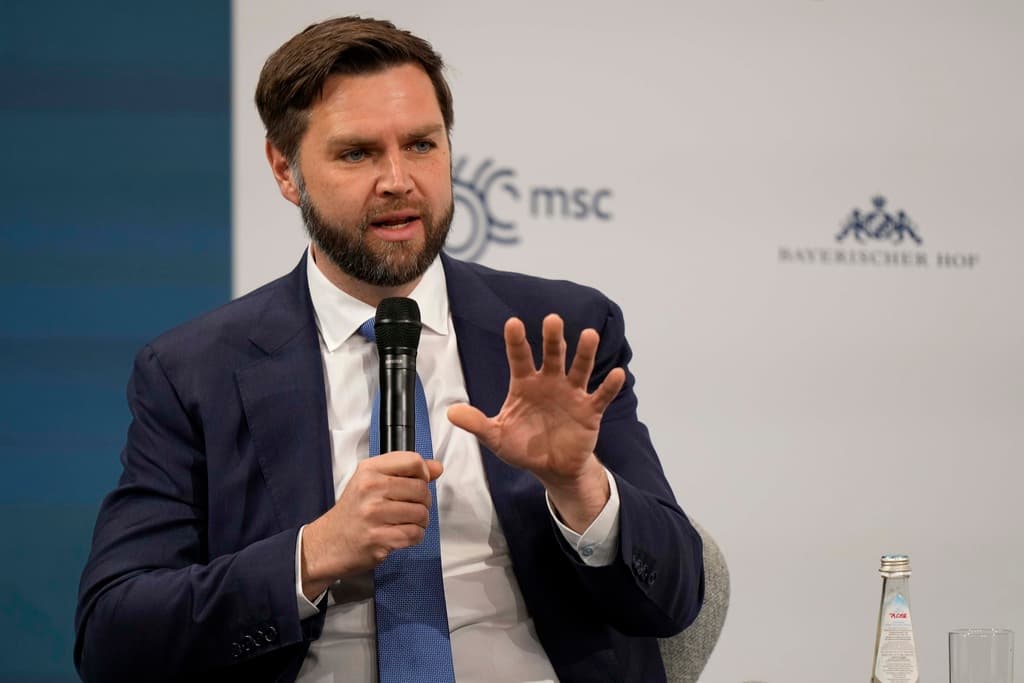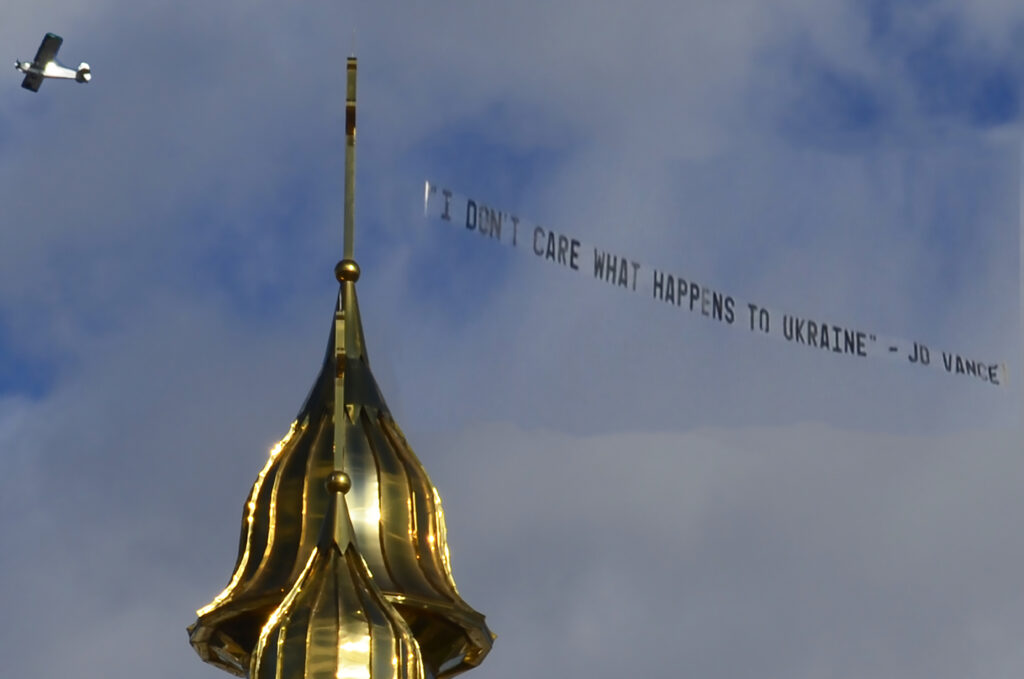Trump’s Chosen Running Mate Likely To Weigh In in Favor of Negotiated Armistice in Russia-Ukraine War
Vance favors land-for-peace deal to end war in Europe and permit America to pivot toward Asia.

When a bipartisan congressional delegation attended the Munich Security Conference in February, Senator Vance was the only member to skip the meeting with President Zelensky and Ukraine’s foreign minister, Dmytro Kuleba. He later told Politico: “I didn’t think I would learn anything new.”
If Mr. Vance’s interviews and newspaper essays over the last six months are a guide, President Trump’s vice presidential candidate, an energetic 39-year-old Marine veteran, will weigh in in favor of a negotiated armistice in the Russia-Ukraine war. This would allow America to focus on what he sees as the future threat to American political and economic hegemony: Communist China.
“There are a lot of bad guys all over the world, and I’m much more interested in some of the problems in East Asia right now than I am in Europe,” he said at the Munich Security Conference. “We should pivot. The United States has to focus more on East Asia. That is going to be the future of American foreign policy for the next 40 years, and Europe has to wake up to that fact.”
Hungary’s president, Viktor Orbán, may be following this script. Within hours of taking over on July 1 the rotating presidency of the Council of the European Union, Mr. Orbán embarked on a 10-day, self-appointed, round-the-world peace-seeking mission. In quick succession, he met with Mr. Zelensky at Kyiv, President Putin at Moscow, Xi Jinping at Beijing, and Trump at Mar-a-Lago.
Trump has “has detailed and well-founded plans” for Russia-Ukraine peace talks and a settlement between the November election and the January inauguration, Mr. Orbán wrote in a letter sent to the European Council president, Charles Michel, and other EU leaders, the Financial Times reported last night. Assuming a Trump victory, Mr. Orbán wrote: “He will not wait until his inauguration, but will be ready to act as a peace broker immediately.”

Land for peace is a formula advocated in the past by Mr. Vance, who served in Iraq and says he sees “no endpoint” in the Russia-Ukraine war. In Munich, he argued: “Any peace settlement is going to require some significant territorial concessions from Ukraine, and you’re gonna have a peace deal, because that’s the only way out of the conflict.” Since Russia launched the full scale invasion in February 2022, it has conquered a net 25,000 square miles, about 11 percent of Ukraine’s national territory, according to calculations by Harvard’s Belfer Center.
In “The Math on Ukraine Doesn’t Add Up,” a New York Times opinion piece issued in April, Mr. Vance argued against further American military aid to Ukraine. In that fight, Trump apparently gave Speaker Johnson the green light to pursue a $61 billion aid package for Ukraine. Looking ahead, Trump may continue a balancing act, playing Mr. Vance’s isolationism against more interventionist voices.
However, both men see eye to eye on the need for Europe to pay more for its defense. “Trump is actually issuing a wake up call to say that Europe has to take a bigger role in its own security,” Mr. Vance said in Munich. “The American security blanket has allowed European security to atrophy.”
“As the American defense budget nears $1 trillion a year, we ought to view the money Europe hasn’t spent on defense for what it really is: an implied tax on the American people to allow for the security of Europe,” Mr. Vance wrote in February in the Financial Times. “America has been asked to fill the void at tremendous expense to its own citizens.”
With an existential war to fight, the Ukrainians retort that they do not have the luxury to wait for the perfect moment when Europe has rebuilt its arms industry. The selection of the outspoken senator to be Trump’s running mate was met yesterday with gloom at Kyiv.
“JD Vance is a danger to Ukraine,” NOEL, a military-oriented Twitter feed, posted last night. “Remember: Vance said Ukraine should cede land and cut a deal with Putin to end the war.” The Kyiv Independent news site headlined: “JD Vance opposes military aid, NATO membership for Ukraine. He’s now Trump’s VP pick.”
Perhaps foreseeing where the Orbán peace initiative is heading, Mr. Zelensky announced at a press conference yesterday morning in Kyiv that he plans to hold a second peace summit in November. He said he would invite Russia. As a follow-up to his first peace conference last month in Switzerland, he said that multi-nation working groups are elaborating solutions to three issues: food security, nuclear safety, and the releases of children and prisoners of war.
At the press conference, Mr. Zelensky said he is aware of the general points of a Trump peace plan. He assured reporters that he is “not afraid” of Trump returning to the White House.
In Mr. Vance’s home state of Ohio, many members of the politically influential Ukrainian diaspora worry about his impact on a Trump Administration Ukraine policy. While Ohio representative Marcy Kaptur is a founder and co-chair of the 77-member House Ukraine Caucus, Mr. Vance consistently refused to meet with representatives of Ukrainians abroad.
A photograph taken at Parma, Ohio, during the last days of the 2022 Senate race catered to local feelings. High above the spires of Saint Josaphat Cathedral of the Ukrainian Catholic Church, a small plane trailed a banner emblazoned with a comment Mr. Vance made to Trump strategist Steve Bannon just days before the Russian invasion: “‘I don’t care what happens to Ukraine’ — JD Vance.”

